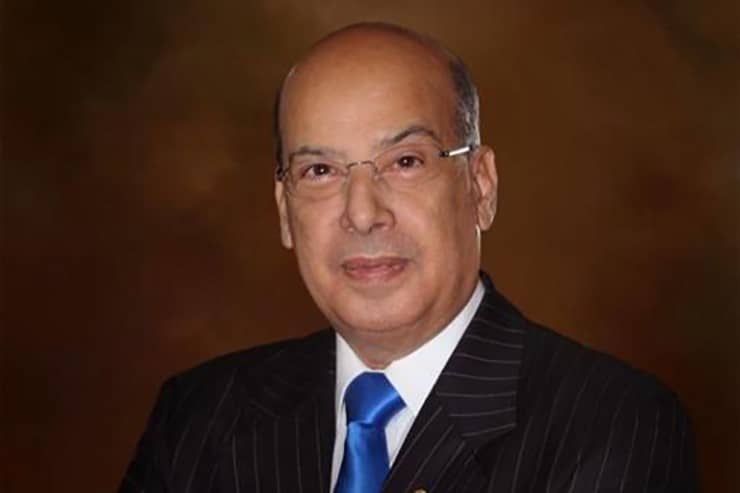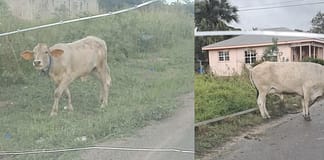
By Sir Ronald Sanders
For sixty years, from their entry into school, Venezuelans have been trained into believing that the Essequibo region of Guyana belongs to Venezuela. Consequently, regardless of the facts, this belief is ingrained in the Venezuelan psyche.
This is why, the only matter on which the contending political factions in Venezuela can agree is that Essequibo is Venezuelan.
It has long been a political tactic that, when there is domestic discord, a common enemy should be created, in an attempt to gain political support generally. Hence, the periodic but persistent proclamations from Venezuela, claiming Essequibo.
The latest attempt to validate the acquisition of the Essequibo region is evident in the questions posed to the Venezuelan electorate in a forthcoming referendum with a predetermined outcome.
The contrived referendum, prejudicially titled, “in defence of Guayana Esequiba”, will be held on 3rd December 2023. Among its deliberately leading questions, designed to get a desired positive answer, is the following: “Do you agree with the creation of the Guayana Esequiba state and the development of an accelerated plan for the comprehensive care of the current and future population of that territory that includes, among others, the granting of citizenship and Venezuelan identity card in accordance with the Geneva Agreement and international law, consequently incorporating said state on the map of Venezuelan territory?”.
Given that for over 60 years, successive governments of Venezuela have carried out a propaganda policy of brainwashing their people to adopt the claim that Essequibo belongs to Venezuela in defiance of an 1899 International Arbitral Award, the question is framed to secure the electorate’s support as validation of the annexation of Essequibo.
Significantly, the questions for the referendum ignore entirely that there is an existing arbitral award since 1899 that establishes the boundaries between Venezuela and Guyana. Similarly, the questions ignore the historical evidence that Venezuela proclaimed the arbitral award and ratified it in their congress.

The referendum also makes no mention of the fact that, since 2018, there is a case before the highest legal court in the world, the International Court of Justice (ICJ), to settle the validity of the 1899 award.
The only reference to these proceedings is contained in question 3 of the referendum, which, prejudicially, poses the loaded question: “Do you agree with the historic position of Venezuela not to recognise the jurisdiction of the International Court of Justice to resolve the controversy over the territory of Guayana Essequiba?”.
The Venezuelan authorities neglect to advise their electorate of Articles 92 and 93 of the Charter of the United Nations. Article 92 states, “The International Court of Justice shall be the principal judicial organ of the United Nations” and Article 93 declares, “All Members of the United Nations are ipso facto parties to the Statute of the International Court of Justice.” Not to recognise the jurisdiction of the ICJ is tantamount to a repudiation of the UN Charter.
Moreover, the ICJ has already twice decided that it has jurisdiction to determine the validity of the 1899 award and the related land boundary between Venezuela and Guyana. The placing of the question in the referendum, in the manner in which it is framed, is a flagrant disregard for international law, the UN Charter and the ICJ.
It is clear that this contrived referendum is designed to lead the Venezuelan electorate into giving cover for the government decision to ignore the ICJ proceedings and, instead, to take unilateral action to “incorporate” Essequibo into “the territory of Venezuela”.
The Caribbean Community (CARICOM) rightly responded to this situation by noting that “two of the questions approved to be posed in the Referendum, if answered in the affirmative, would authorise the government of the Bolivarian Republic of Venezuela to embark on the annexation of territory, which constitutes part of the Cooperative Republic of Guyana, and to create a state within Venezuela known as Guyana Essequibo”. Further, CARICOM reaffirmed that “international law strictly prohibits the government of one State from unilaterally seizing, annexing or incorporating the territory of another state. An affirmative vote as aforesaid opens the door to the possible violation of this fundamental tenet of international law.”
Against this background, it seems that the Venezuelan government is convinced that its chances of a favourable decision from the ICJ of its claims are very slim. Therefore, it is moving to annexation, a blatant violation of the Charters of the UN and the Organization of American States.
Venezuela has reached this point after many efforts to scuttle the ICJ process, by asserting that the controversy with Guyana could be settled by dialogue and negotiation between the two states. In making this assertion, Venezuela ignores the 50 years of joint commissions, direct negotiations, and UN good offices mediation which all failed. It also ignores that the present ICJ process, which flowed directly from the 1966 Geneva Agreement in which both Venezuela and Guyana agreed, under Article IV (1), that the UN Secretary-General shall make the decision concerning “one of the means of settlement provided in Article 33 of the Charter of the United Nations”. The Secretary-General decided on the ICJ.
And, Venezuela had every opportunity to participate actively in the proceedings even after it lost its legal arguments objecting to the Court’s jurisdiction. Therefore, Venezuela’s call for dialogue and negotiation is another gambit to avoid the judicial means of settlement.
International law and the ICJ process are the legitimate and peaceful pathways to a definitive settlement of the land boundary.
Any attempt to unilaterally incorporate Essequibo into Venezuela as is promoted by the planned referendum, or any subsequent military action in furtherance of such a contrived referendum, will rightly be met by international odium, condemnation and action.
Responses and previous commentaries: www.sirronaldsanders.com
(The writer is Antigua and Barbuda’s Ambassador to the US and the OAS. He is The views expressed are his own)
Advertise with the mоѕt vіѕіtеd nеwѕ ѕіtе іn Antigua!
We offer fully customizable and flexible digital marketing packages.
Contact us at [email protected]
















You know we the descendants of Africans, who were brought here as slaves should know that the lands we now call our own, where once occupied by Indians. So historically it is not our lands. The Europeans came and killed many of the indigenous people of these Islands and some in South America. Especially the Guyanese. Also known as the British, Dutch and French Guyana. The Europeans put the borders where they want to or where they agreed to. That is why some islands are split in two. Like St. Maarten and Hispaniola. British Guyana also known as Guyana, Dutch Guyana now known as Surinam and French Guyana remained to be called French Guyana still have their original inhabitance living withing their borders. And many of them still live in tribes in the interior in the jungle as we call it. They have little economic power and hardly bother with the outside world. The rest of South America which was mainly occupied by the Portuguese, such as Brazil and the rest of South America was occupied mainly by Spain. No wonder all those countries, accept Brazil speak Spanish. While Brazil is the only Portuguese speaking country. When Slavery came to an end the colonial powers divided the territories without the input of the indigenous people. That is why we now have border disputes as we now see between Venezuela and Guyana, but also between Surinam and Guyana. Although the border issue between Venezuela is now in the media, that between Surinam and Guyana is not a settled issue either. How did this happen. Well England and The Netherland never settled their border dispute and when these countries got their independence this unresolved issue went on. In the past it caused these two countries to be at war with each other, but now that around these disputed borders gold and oil is found it is becoming a problem once again. One must understand that the Arawak and the Amerindians and other tribes are the original inhabitants of the lands. And therefore who will decide where their border is? it can never be a fair decision. Especially when history teaches you that your forefathers inhabited these lands for centuries. But just like the nowadays Americans can claim that it is their land, so too will the court decide, despite the claim and the fact that the entire continent was INDIAN LAND. Guyanese you are my Brothers and Sisters but the land which you and we all live on is INDIAN LAND. Our land is AFRICA.
I take a different view of land and history. To me, all living things, including us, have a right to try to live and thrive where we are born on Earth in the here and now, regardless of where our ancestors lived. I respect my African ancestors, but I am from the Caribbean. We also have some right to move around on Earth to try to find a place to survive once we are respectful to those who are already living in a place before us. So, the people who should be having a referendum are any people who currently live in the disputed areas. They should decide if they want to belong to either country or even create their own country. If no one is living there then draw a line down the middle and be done with it.
A very simplistic way of thinking, but as you may be aware, wars are fought all over the world because of the dispute of whose land it is. To name a few areas:
South China Sea
Ethiopia-Eritrea
Kuril Islands
Israel/Palestine
Jammu & Kashmir
Western Sahara
Antarctica
Crimea
Korean Peninsula
Somaliland
https://en.wikipedia.org/wiki/List_of_territorial_disputes
Comments are closed.